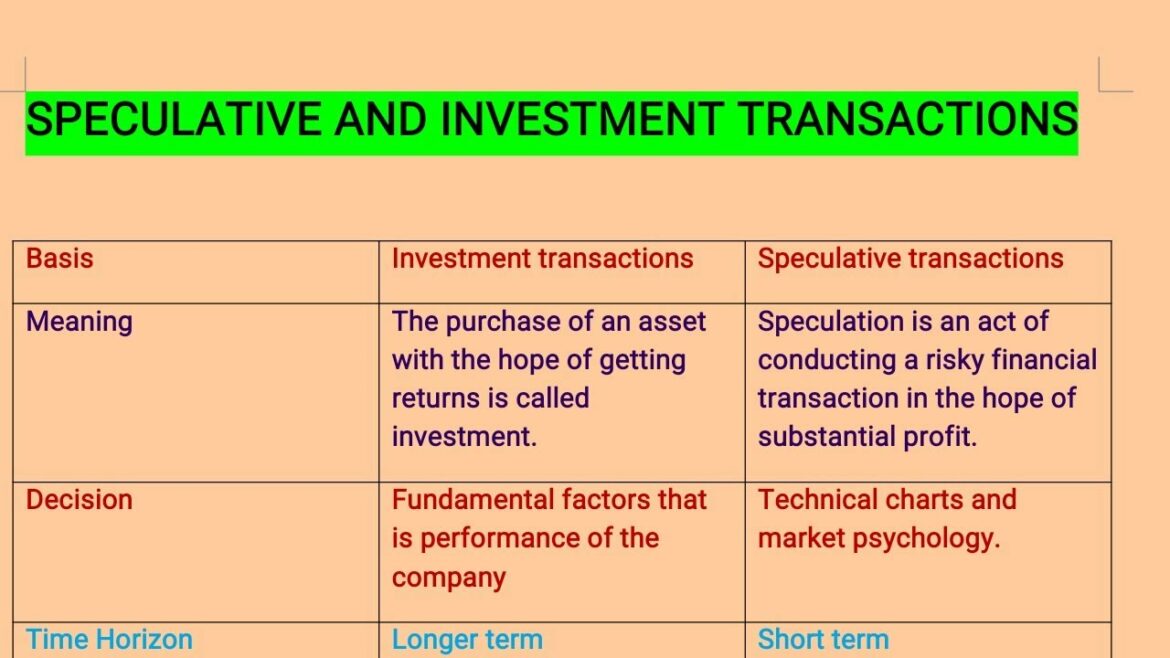Speculative Investment
Speculative investment is a form of investing characterized by high risk, potential for large gains and losses, and the expectation of an above-average return. Speculation involves buying assets with the hope that their price will increase in the future and selling them at a higher price than what was initially paid. In contrast to traditional investments such as stocks or bonds, speculative investments are often considered to be more risky because they involve greater uncertainty about future outcomes.
The primary goal of speculative investment is to make money quickly through capital appreciation rather than income earned from dividends or interest payments. Investors may choose to speculate on assets that they believe have the potential to appreciate significantly over time due to factors like economic growth, technological advances, changes in government regulations, supply/demand dynamics etc. Examples of assets commonly used for speculation include cryptocurrencies, commodities (such as oil or gold), foreign currencies and real estate.
It is important for investors engaging in speculative investments to understand both their own financial goals as well as the associated risks involved with each strategy employed before entering into any transactions. As such it is not recommended for novice investors who lack experience managing highly volatile markets nor those whose primary objective is capital preservation rather than capital appreciation. Furthermore it should also be noted that most regulatory bodies consider this type of investing a high risk activity which can result in significant losses if undertaken without proper preparation or supervision from qualified professionals familiar with these types of instruments and strategies employed therein.


